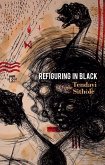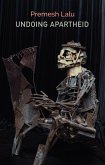This book by one of Latin America's leading cultural theorists examines the place of the subject and the role of biographical and autobiographical genres in contemporary culture. Arfuch argues that the on-going proliferation of private and intimate stories - what she calls the 'biographical space' - can be seen as symptomatic of the impersonalizing dynamics of contemporary times. Autobiographical genres, however, harbour an intersubjective dimension. The 'I' who speaks wants to be heard by another, and the other who listens discovers in autobiography possible points of identification. Autobiographical genres, including those that border on fiction, therefore become spaces in which the singularity of experience opens onto the collective and its historicity in ways that allow us to reflect on the ethical, political, and aesthetic dimensions not only of self-representation but also of life itself. Opening up debate through juxtaposition and dialogue, Arfuch's own poetic writing moves freely from the Holocaust to Argentina's last dictatorship and its traumatic memories, and then to the troubled borderlands between Mexico and the United States to show how artists rescue shards of memory that would otherwise be relegated to the dustbin of history. In so doing, she makes us see not only how challenging it is to represent past traumas and violence but also how vitally necessary it is to do so as a political strategy for combating the tides of forgetting and for finding ways of being in common.
Dieser Download kann aus rechtlichen Gründen nur mit Rechnungsadresse in D ausgeliefert werden.
"Leonor Arfuch's Memory and Autobiography is a brilliant reflection on autobiography not as a mere exercise in self-construction but as an act of witnessing the unforgettable and as a call to communal dialogue. An invaluable contribution by one of Latin America's most insightful cultural critics."
Sylvia Molloy, Albert Schweitzer Chair in the Humanities Emerita, New York University Sylvia Molloy, Albert Schweitzer Chair in the Humanities Emerita, New York University
Sylvia Molloy, Albert Schweitzer Chair in the Humanities Emerita, New York University Sylvia Molloy, Albert Schweitzer Chair in the Humanities Emerita, New York University









